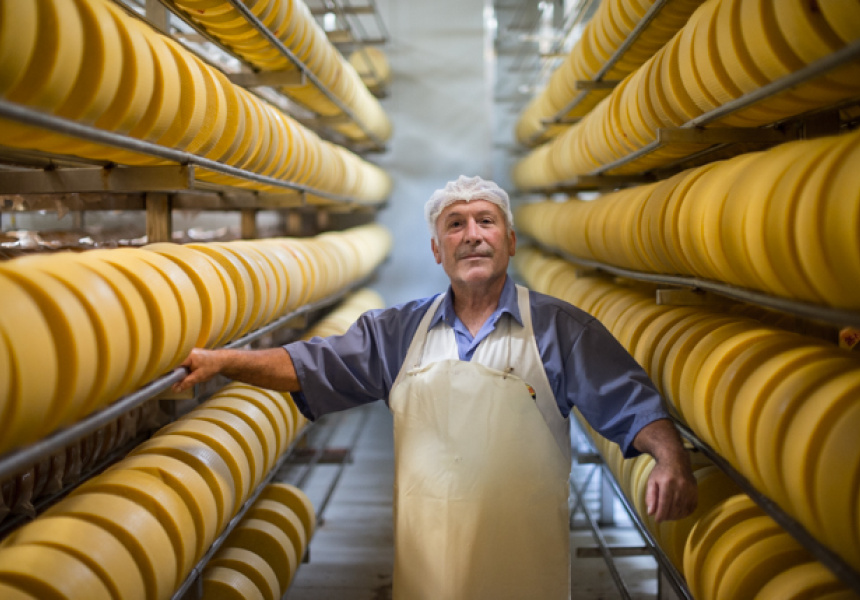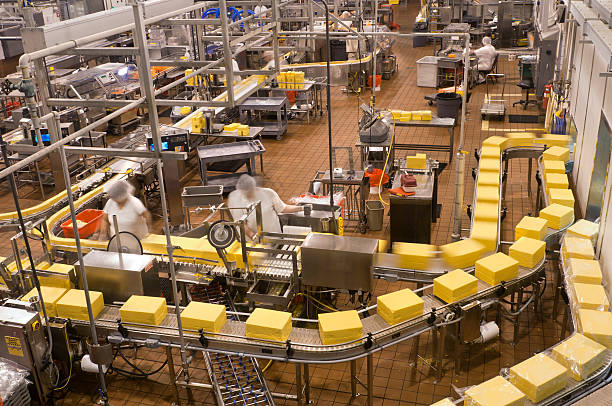Cheese Makers Melbourne: Crafting best Cheeses In Your Area
Cheese Makers Melbourne: Crafting best Cheeses In Your Area
Blog Article
A Thorough Check Out Cheese Production: Ingredients, Approaches, and the Future of Craftsmen Cheeses
The detailed process of cheese manufacturing is a remarkable convergence of art and science, where top quality milk, rennet, and specific microbial cultures offer as fundamental elements. As the industry increasingly prioritizes sustainability and transparency, the future of artisan cheeses guarantees to mirror both heritage and progress.
Trick Components in Cheese Manufacturing
A selection of essential components play a critical role in cheese manufacturing, each adding to the final item's flavor, structure, and character. The main active ingredient in cheese is milk, which can come from different resources, consisting of cows, goats, and lamb - cheese for sale online. The type of milk utilized significantly influences the cheese's taste and consistency; for circumstances, cow's milk usually produces creamier cheeses, while goat's milk frequently generates tangy ranges
One more important active ingredient is rennet, an enzyme utilized to curdle the milk, separating it right into curds and whey. The resource of rennet can be animal, vegetable, or microbial, each presenting unique attributes to the cheese.
Salt not only improves the flavor but also functions as a chemical, preventing the growth of unwanted bacteria. Furthermore, different flavoring agents, such as herbs, spices, and even smoked timber, can be included in create distinct artisanal cheeses. With each other, these active ingredients form the structure of cheese production, setting the stage for diverse and abundant cheese selections.
Standard Cheese-Making Methods
Utilizing standard cheese-making methods, craftsmens worldwide maintain time-honored approaches that have actually been passed down via generations. These strategies typically stress making use of top quality, locally sourced milk, which is central to the unique tastes and textures of artisanal cheeses. The procedure normally starts with the careful heating of milk, complied with by the addition of societies and rennet to help with coagulation.
When the curds form, they are cut, allowing whey to drain pipes, a critical action that affects moisture web content and texture. Salting is a vital element of this procedure, enhancing taste while likewise acting as a preservative.
Aging, or affinage, is another vital element, throughout which cheeses develop their particular aromas and preferences. Artisans may utilize details maturing atmospheres, making use of moisture and temperature controls to refine celebrity's account. The commitment to these typical techniques not just sustains local economic climates but also adds to the rich diversity of cheese ranges found around the world, commemorating cultural heritage and artisanal workmanship.
Modern Innovations in Cheese Manufacturing
How have technological improvements changed cheese manufacturing recently? The combination of contemporary technology has actually transformed both the efficiency and quality of cheese production. Automation in various phases of the process-- from curd formation to packaging-- has actually enhanced consistency while decreasing labor costs. Automated curd reducing and stirring systems allow for precise control over appearance and wetness degrees, essential aspects affecting the final item.
In addition, improvements in microbiology have made it possible for cheesemakers to select particular microbial societies and enzymes, maximizing taste accounts and enhancing rack life. Using sensor modern technology for monitoring fermentation problems has likewise become prevalent, enabling real-time adjustments to maintain optimum settings for cheese aging.

These improvements not just improve the high quality and sustainability of cheese production however likewise equip artisan manufacturers to you can try here maintain conventional tastes while welcoming contemporary effectiveness. As modern technology remains to progress, the future of cheese manufacturing looks appealing, mixing practice with advancement.
The Role of Terroir in Cheese
In the world of cheese manufacturing, terroir plays a crucial duty in specifying the distinct features of different cheeses. Terroir, a French term typically linked with wine, encompasses the ecological factors that affect farming products, including check out this site dirt make-up, environment, and neighborhood plants and fauna. In cheese-making, the special characteristics of the area where the milk is sourced can impart particular flavors and textures to the final product.
For instance, the grazing conditions of milk pets dramatically influence the milk's structure, affected by the sorts of turfs and natural herbs readily available in a certain locale. This differs not only in between nations but likewise between regions within the same country. Additionally, the microbial communities existing in the setting add to the fermentation processes, causing diverse accounts in flavor and scent.
Cheeses such as Roquefort, Parmigiano-Reggiano, and Cheddar exemplify how terroir can shape their identifications, making them unique and usually secured by geographical indications. As manufacturers progressively recognize the importance of terroir, there is a growing emphasis on sourcing regional active ingredients and maintaining typical methods, making certain that each cheese genuinely mirrors its beginning.

Future Patterns in Artisan Cheeses
A significant shift is taking place in the artisan cheese sector, driven by progressing customer preferences and technical improvements. Increasingly, customers are inclining special, top notch items that emphasize both sustainability and neighborhood sourcing - cheese for sale online. This pattern is prompting artisan cheesemakers to innovate, concentrating on small-batch production and using traditional strategies while integrating modern-day innovation to enhance top quality and security
Additionally, there is an expanding interest in plant-based and alternative milk products, pushing standard cheesemakers to explore new avenues, such as cashew or almond-based cheeses. This shift not just accommodates nutritional constraints however also lines up with environmental issues concerning pet farming.
Additionally, openness in sourcing and production procedures is coming to be critical. Customers are much more educated and demand traceability, prompting manufacturers to embrace more clear labeling methods and participate in narration that highlights their techniques and worths.
Verdict
To conclude, the intricate process of cheese manufacturing blends conventional techniques with modern innovations, causing a diverse range of tastes and textures. The emphasis on high-grade active ingredients and the influence of terroir underscore the creativity entailed in cheese useful source manufacturing. As the sector advances, a concentrate on sustainability and openness will likely shape the future of artisan cheeses, dealing with a significantly critical customer base that values credibility and craftsmanship in dairy items.
Report this page